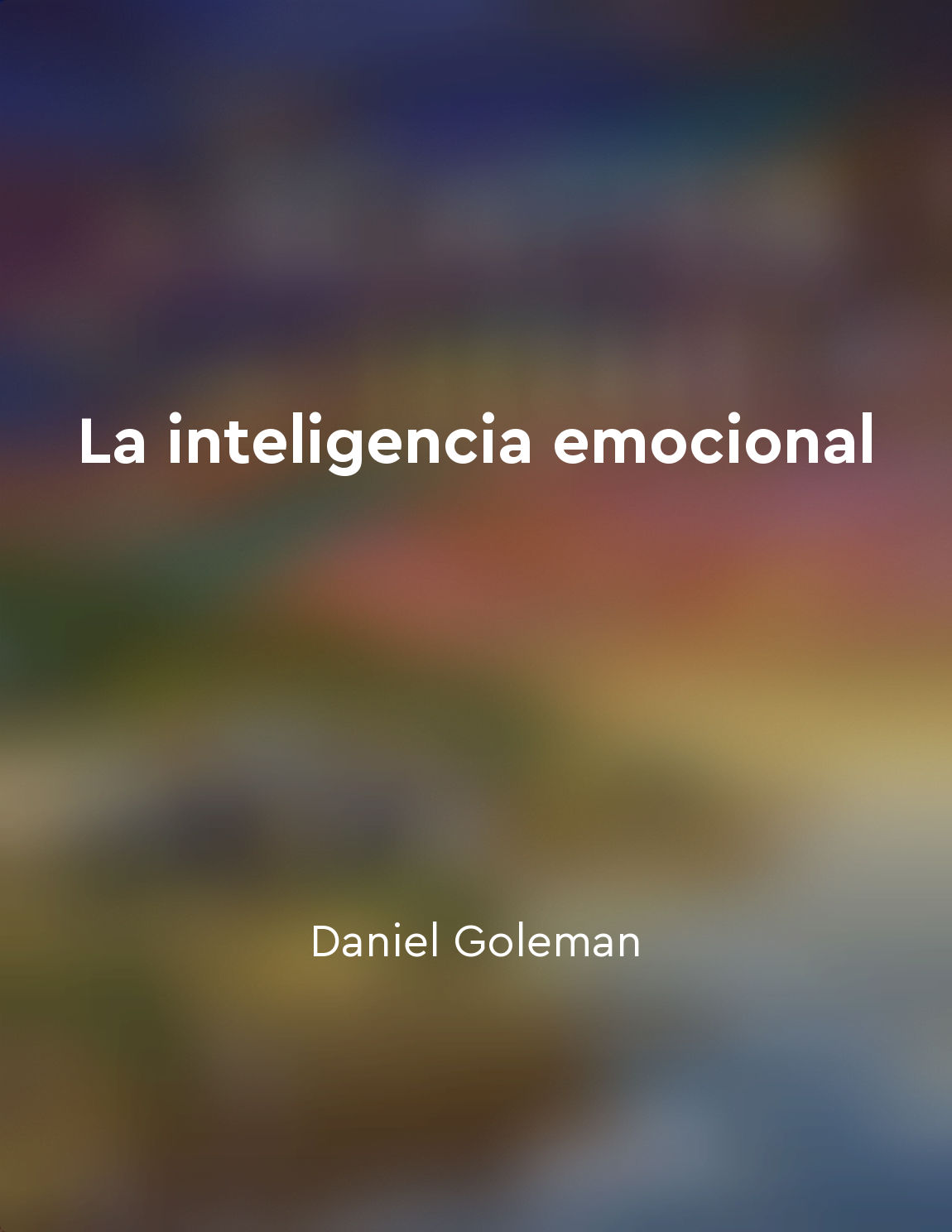Audio available in app
Emotional selfregulation leads to better stress management from "summary" of La inteligencia emocional by Daniel Goleman
Emotional self-regulation is a crucial skill that influences how we handle stress. When we are able to regulate our emotions effectively, we are better equipped to manage the challenges and pressures that come our way. This ability allows us to maintain our composure in stressful situations and avoid becoming overwhelmed by our emotions. By developing emotional self-regulation, we can respond to stress in a more constructive manner. Rather than reacting impulsively or allowing our emotions to dictate our actions, we can pause, assess the situation, and choose how to respond thoughtfully. This helps us to avoid making decisions based solely on our emotions, which can often lead to regrettable outcomes. Furthermore, emotional self-regulation can help us to maintain a sense of calm and stability during times of stress. Instead of feeling consumed by anxiety or anger, we can tap into our emotional intelligence to soothe ourselves and regain our equilibrium. This enables us to think more clearly and make rational decisions, even in high-pressure situations. Moreover, when we are able to regulate our emotions effectively, we are less likely to experience chronic stress. Chronic stress can have a detrimental impact on our physical and mental well-being, leading to a host of health problems. By managing our emotions and stress levels, we can protect ourselves from the negative consequences of chronic stress and maintain a healthier lifestyle.- Emotional self-regulation plays a critical role in how we manage stress. By honing this skill, we can navigate challenging situations with greater ease and resilience. This not only benefits our emotional well-being but also contributes to our overall health and quality of life.


